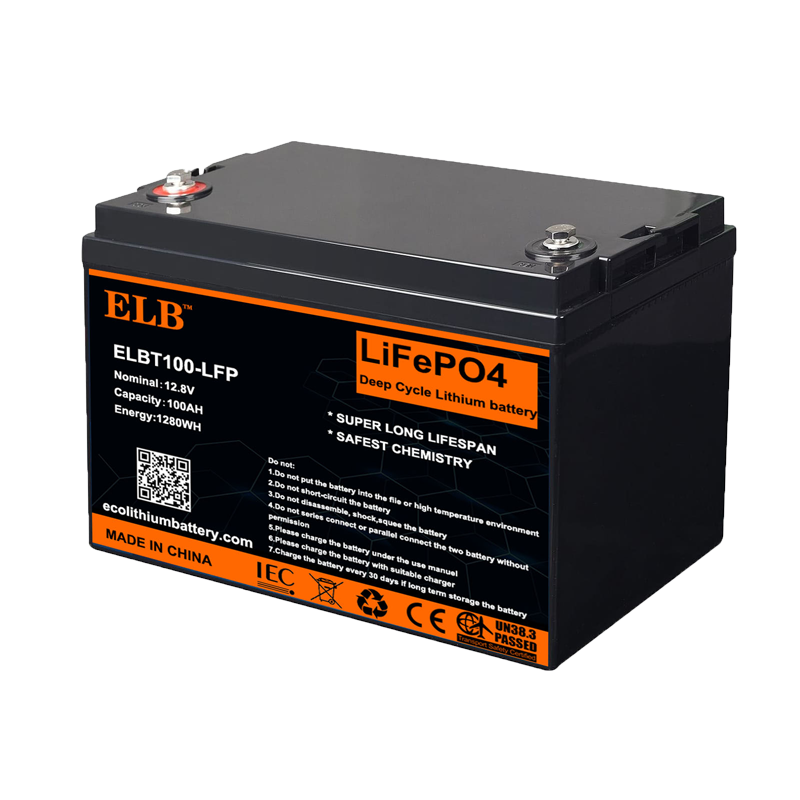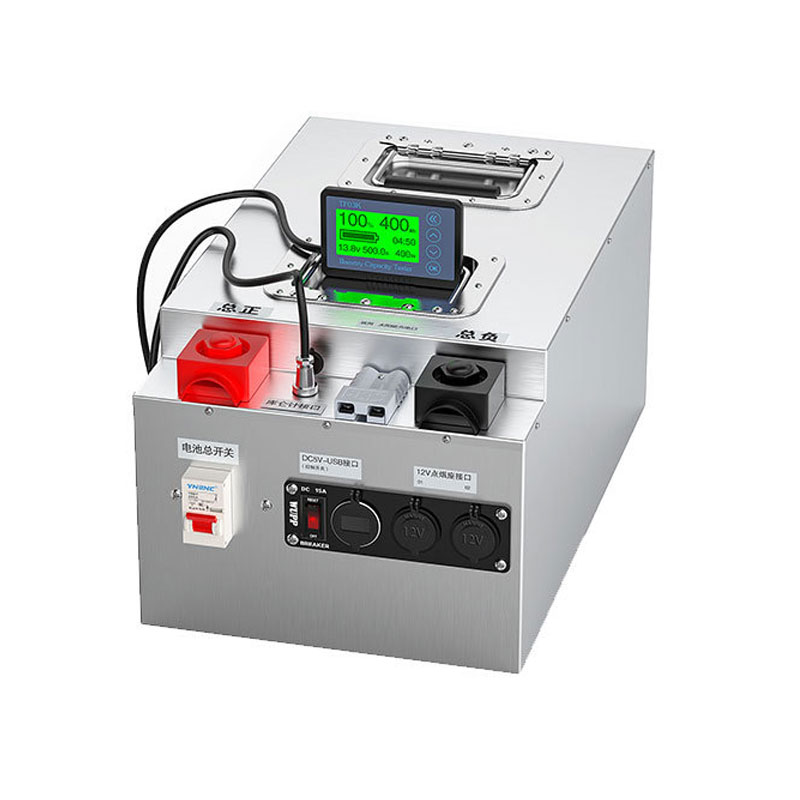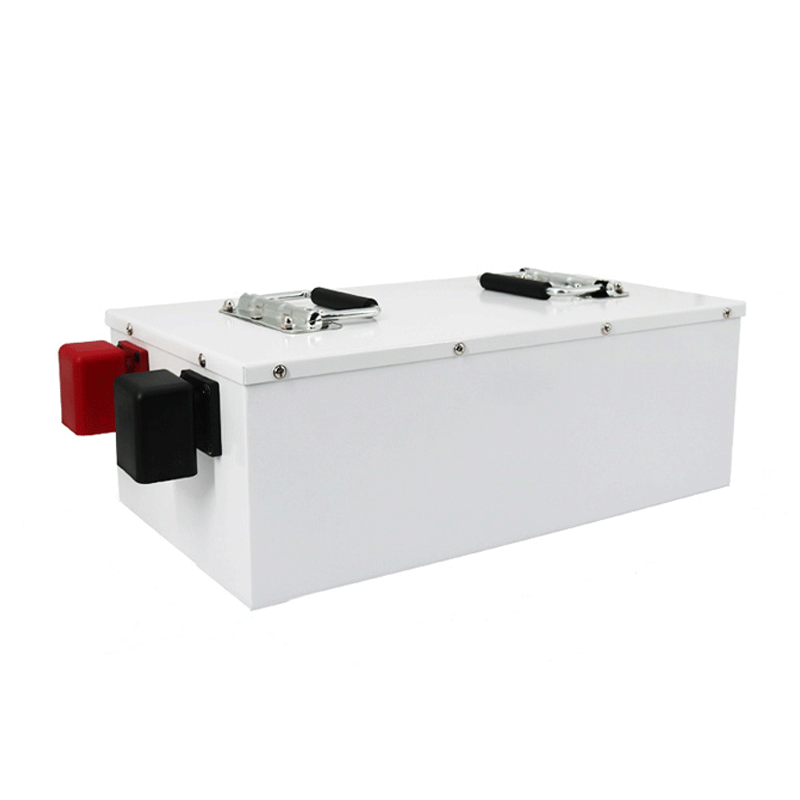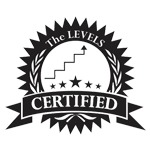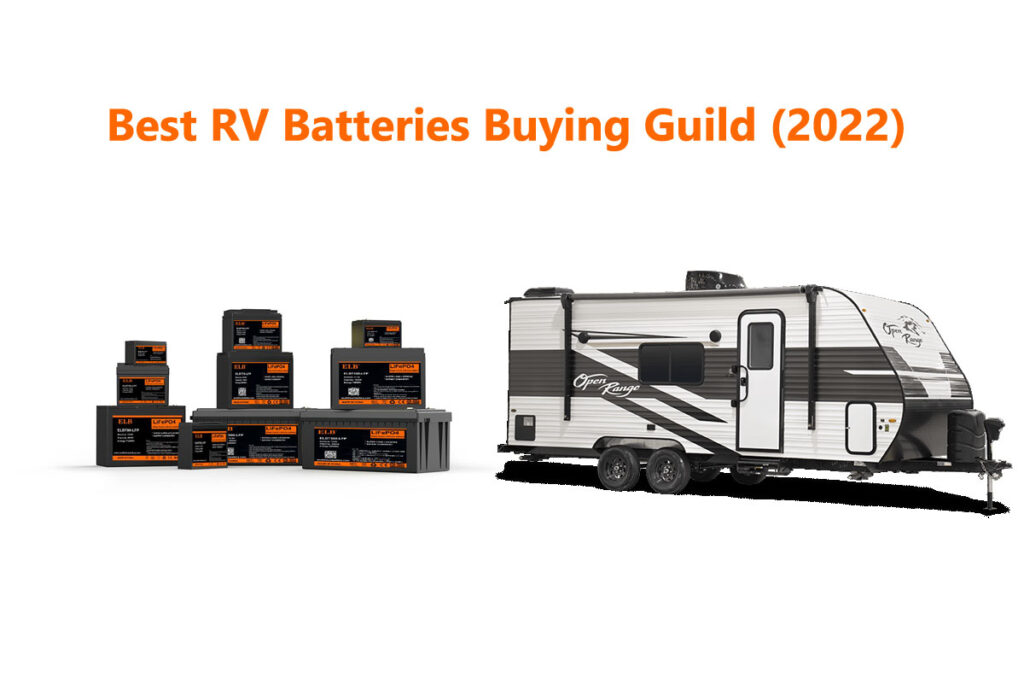
What is a RV battery?
RV batteries are often used to store electricity. There are usually three types of batteries in the market – VRLA batteries, AGM batteries, Lithium batteries.
Whether you’re a novice or an experienced RVer, it’s important to be familiar with the type of RV battery you need. It’s also good to know about the various batteries so you can become familiar with the options. Learn the pros and cons of different RV batteries and how to maximize battery life below.
Types of RV batteries
The RV battery is the power source for the systems that control the taillights, interior loads, electric wheel brakes, marker lights and all accessories on the dashboard.
RV batteries are typically provide 12 volts DC to all components of the trailer. Almost all components in the trailer run on 12 volts. Shore power is typically 120-volt alternating current (AC) power for charging the RV battery. The electricity is convert to 12 volts, which can generate power for the appliances such as refrigerators, microwaves, etc.
Value Regulated Lead Acid (VRLA) Batteries.
This type of electrolyte is suspended in a GEL or fiberglass mat. When gel acid is used, the battery is called a GEL battery.
Absorbed Glass Mat (AGM) battery
A fiber mat is sandwiched between the plates of this battery, which is more expensive than a regular deep-cycle battery. You can charge them like lead-acid batteries, but they’re leak-proof, can’t freeze at low temperatures, and are mostly maintenance-free.
Lithium-ion battery
This type of battery used to lack deep-cycle applications, but more is now being produced for this purpose. Lithium-ion batteries have an internal management system for maximum safety. they provide more power than many other types of batteries and they are lighter and more compact than lead-acid batteries. Also 4 times lifespan than normal lead acid batteries.
What is the best RV batteries?
With the popularization and maturity of lithium battery technology, lithium battery deserves to be the best RV battery. The following details the reasons why we are updating lead-acid batteries to lithium batteries.
- Environmentally Friendly
- Lightweight And Compact
- High Energy Density
- Low Maintenance
- Long Lifespan
- Low Self-discharge Rate
For more details, please visit article <Benefits Of Lithium Batteries>
How long does a battery last on a recreational vehicle?
Obviously, when someone asks me about how long do RV battery last, we should distinguish between lead-acid batteries and lithium-ion batteries, because the lifespan of the two is very different, which is determined by the internal chemistry of the two. Below I talk about the lifespan of lithium and lead acid batteries separately.
Lifespan of lead acid RV batteries

The above diagram is the cycle life of Trojan Deep-Cycle Gel Batteries, the lifespan is 500times@80%DOD.That means if you charge/discharge your RV one time per day, your RV battery can last 500/365=1.36years. And if you charge/discharge your recreational vehicle one time per two day, your RV battery can last 500/365*2=2.72years.
Lifespan of lithium RV batteries
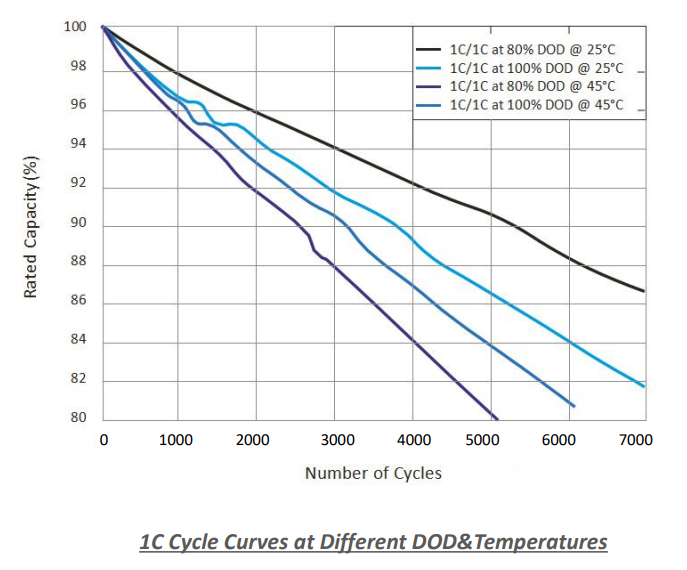
The above diagram is the cycle life of ELB Deep Cycle lithium Batteries, the lifespan is more than 6000times@80%DOD.That means if you charge/discharge your RV one time per day, your RV battery can last 7000/365=16.43years. And if you charge/discharge your RVs one time per two day, your RV lithium battery can last 7000/365*2=32.86years.
In summary,
RV Lead-acid battery can last 1-3years
RV Lithium battery can last 10-20 years.
How to prolong the lifespan of RV batteries?
As we all know, Proper maintenance of the battery, and compliance with the principles of battery use, which can greatly extend the life of the battery.
Improper use of the battery will also shorten the life of the battery.
Anyway, here are a few tips to keep in mind to enable your battery last longer.
Charging tips
- Regularly Charging. Under normal circumstances, when the battery is too low, there will be a reminder when the battery has no electricity. At this time, you need to replenish the battery in time. Although the battery is too low, it will not lead to a direct safety accident, but excessive use will lead to over time. Damage to the battery structure.
(For more details about the lithium battery charging, please check our artricle 《Lithium Battery Charging: The Definitive Guide》)
- Do not overcharge. The inside of the lithium battery cell is also composed of many components. The new battery is fine. If we use it in a long time, the function of which component may decline, so there will be an overcharge safety risk. Generally, Overcharging your RV battery cause damage to it in the long run.
- Use a suitable charger. Do not charge batteries with inappropriate chargers.

Using tips
Avoid Completely Draining the Battery
Once the battery indicator on your RVs shows that the battery is getting low, proceed straightaway to charge it.
Allowing the battery to completely drain out has an adverse effect on the lifespan of the battery. It could hamper performance.
When the battery is used up, please recharge the battery in time.
Maintenance tips
The purpose of daily maintenance is to place the lithium battery in a suitable environment, thereby delaying the aging of the battery.
Here is two maintenance tips that we need comply with.
- Protect against moisture.
- And avoid direct sunlight.
Also you can check below article to get more ideas.
(How to extend the battery life?)
Where I can sourcing the best RV batteries?
ELB technical team succeed to developed lithium RVs battery already. Also if you want to do the customized RVs battery, please connect with ELB technical team to provide the scheme and quotation.
